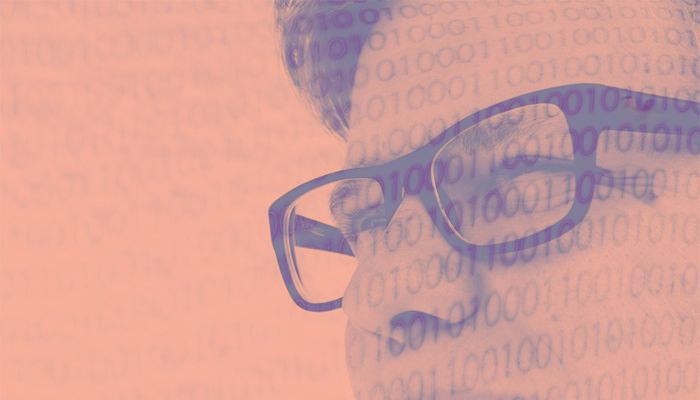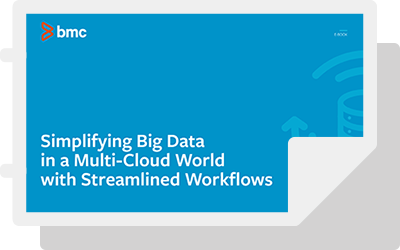More businesses are invested in statistics and analytics, creating a need for people who excel at working with a large volume of high-velocity data. Data science is a lucrative profession that generally requires many years of schooling that results in a PhD.
However, a citizen data scientist is an emerging profession that benefits companies in need of mid-level employees who have knowledge of data principles and analytics. In this article, we’ll talk about the role of the citizen data scientist, what it is, how businesses benefit from it, and how to become a citizen data scientist.
What is a citizen data scientist?
A citizen data scientist is someone who works with Big Data to create modeling and analytics that is more advanced than a layperson, but not operating at the level of a data scientist. The term “citizen” implies it’s someone without formal training in data science, and the data scientist part of the title acknowledges they have the practical knowledge to be successful.
Citizen data scientists don’t replace the need for data scientists who go through the training and education to have the skills to analyze large quantities of data, create advanced models, deduce important statistics and create business metrics using insights from data. Without formal training, citizen data scientists have the skill to create moderately complex models, but usually lack what’s necessary to work with advanced data analytics and modeling.
Still, becoming a citizen data scientist is an increasingly popular choice for people who aren’t ready to dive into a PhD but are skilled with data, because there is a greater need for talented data professionals than there are data scientists to fill the roles. This makes for an especially lucrative profession for the right person who is ready to take their mid-tier data modeling and analytics skills to the next level of employment.
Who can become a citizen data scientist?
To become a citizen data scientist you need to have the following skills and traits:
- Organizational context: The right person is someone who understands the vision, mission, and needs of the company, and how data helps propel their needs.
- Divergent thinking: The ideal citizen data scientist can think outside the box, coming up with data models and connections that go beyond what the average layperson would conceptualize.
- Strong analytical skills: A citizen data scientist must be analytical as a hallmark of the role. Being able to perform fairly complex data analysis is part of the job.
- Ability to assess information meaningfully: It’s important for a citizen data scientist not only to assess the data in front of them logically but also to draw meaningful conclusions from it that the average person might not see.
- Emphasize business value: In data analysis, a citizen data scientist must be able to emphasize the value in what they are doing in order to develop into the position as a promotion from their existing duties.
- Industry adjacency: The best candidates for a citizen data scientist work in a field that is adjacent to data science, something with lots of math and analytical processes. Software developers and engineers might be good candidates for the role.
The role of data science in enterprise business
In enterprise business, data science provides important insight into the variables that are at the core of a company’s business model. Things like customer traits and activities, sales growth, resource consumption, and employee retention can all be modeled using data science.
Data models are at the heart of data science. These visual components offer easily digestible information about how points of data relate to one another, and the goals of the company. These models determine how data is structured and compiled in databases and other warehousing and analytics tools that offer deep insights and make them usable. They give context to important data.
Creating a data model requires an understanding of programming and data relationships. In recent history, it’s a role that’s been assumed predominantly by data scientists. But as the need for consistent, quality data, analytics, and insights continues to dominate digital businesses, some people in adjacent roles have been able to propel themselves into a new career–citizen data scientist.
While a scarcity of data scientists has encouraged business leaders to consider their options, technology is driving the democratization of data, modeling, and analytics. This is an exciting time for businesses who need to understand the important insights Big Data has to offer. With platform technology that makes modeling easier, the right candidate for the role can expand their impact on the organization while leaving room for a data scientist to create advanced models that might be necessary for growth.
How to become a citizen data scientist
The fastest path to becoming a citizen data scientist is to reskill or upskill with your employer.
For the sake of effectiveness, it’s a good practice to work in an adjacent field. A career like backend software development or engineering can be a good fit because the roles require a comprehensive understanding of math, computer science, relationships, and coding. Moving into a citizen data scientist role from one of the above-mentioned ones only requires you to upskill, rather than gaining a whole new skillset. Some people who work in these fields are para-professional data modelers already and only need to be able to show and prove their existing skills to move into the role.
If you’re not in an adjacent role, you can opt to take certification courses that offer the skills you need to be an effective citizen data scientist. This might include certifying in Tableau or Python or taking courses that are specific to data science to get a basic foundation. If you have a strong understanding of the company vision and need for data, you may be able to work with your company to reskill and obtain the right certification.
Either path requires extensive knowledge of data software, and the ability to use it effectively. In a digital business economy, more professionals understand the need to diversify their software skills in order to create new and exciting roles that benefit both themselves and their companies.





